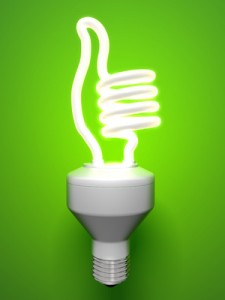Increasing Your Home Value Through Green Technology
Here's some informative research by a fellow blogger about all those pesky Compact Flourescent Light Bulbs we're all trying to figure out. I'm finding that there are many more options for variety of lightbulbs now available, and that the price is coming down. Hope you enjoy!
There are many ways your home can save energy. There are inexpensive strategies to help save energy in your home, such as lowering thermostats and replacing air filters. In this article, some of the options to help save energy in your home - such as replacing appliances and lighting - may be more costly initially, but read on. With tax credits, rebate programs, proper operation and the energy saved over time, you'll find you save money, recouping the costs through the life of your more energy efficient products.
Why all the fuss about Energy Star appliances?
Dishwashers, refrigerators, freezers, water heaters, etc. labeled ôEnergy Starö have met strict energy efficiency guidelines set by the U.S. Environmental Protection Agency and the U.S. Department of Energy. The Energy Star designation was developed to reduce greenhouse gas emissions and other pollutants caused by the inefficient use of energy. The label also makes it easy for consumers to identify energy-efficient products that offer savings on energy bills without sacrificing performance, features and comfort.
What is energy efficient lighting?
Compact fluorescent light bulbs (CFLs), halogen incandescent and light-emitting diodes comprise energy efficient lighting and light your home for less money. In fact, they can reduce lighting energy use in your home by 50 to 75 percent over time. Lighting controls also allow you to use energy more efficiently. You can learn more about energy efficient lighting from the U.S. Department of Energy.
Does dimming save energy?
Yes! Dimmer controls provide variable indoor lighting, reducing wattage and output, which helps save energy. Dimmers for incandescent fixtures are inexpensive and extend their service life.
Can I really save energy at home by turning off unused electronics?
Yes, you can turn off computer to save energy, but you'll save more energy if you take the extra step of unplugging it completely. Believe it or not, your electronic gadgets, appliances (even the most energy efficient ones), power tools and power adapters continue to use standby power even after you've turned them off. On average, they account for five to 10 percent of your home energy use! You'll save energy in your home - and up to $100 per year on your utility bill - by pulling the plug.
Do I qualify for the energy efficient appliance consumer rebate program?
In 2009 and 2010, rebates were being funded with $300 million from the American Recovery and Reinvestment Act of 2009. While your purchase of more efficient appliances may have qualified for a rebate under programs approved by the Department of Energy, a number of states have closed their programs and are no longer accepting applications.
However, there are still programs in place across the country, offering rebates for appliances such as refrigerators, freezers, clothes washers, dish washers, air conditioners, water heaters and furnaces. These programs remain open for a variety of reasons, such as funds initially reserved not being processed and, in some instances, additional funding becoming available. Go to appliance rebate programs to see if your state still has a program in place. You'll save energy and money by participating in an energy efficient appliance consumer rebate program.
Are funds still available through the Energy Star appliance government rebate program?
Yes! Partners of Energy Star, which is a joint program of the U.S. Environmental Protection Agency and the U.S. Department of Energy, sometimes have special offers such as tax credits and rebates on qualified products. Go to special offers to see if your Energy Star appliance is eligible for one where you live.
Can I cash in on the federal stimulus for energy saving appliances?
As mentioned earlier, rebate programs in many states have closed. Go to appliance rebate programs to see if your state still has a program in place.
However, federal tax credits are still available if you make energy efficient improvements in your home. Go to tax credits to see if you can receive credits for improvements such as insulation, roofs, doors, air conditioners and water heaters. Restrictions do apply, so carefully read the fine print.
Another excellent resource for federal, state, local and utility incentives is the U.S. Department of Energy's Database of State Incentives for Renewables and Efficiency, or DSIRE.
Special incentive and rebate programs change. While some programs no longer have funding, it's quite possible that more will be found as time goes on and the need for energy efficiency increases. Be sure to check the resources listed frequently to get the latest information. You might find that you will be eligible for an energy efficient appliance consumer rebate program after all.
Contact Karl Hess for more information on buying homes in Ocean County.


Comments(0)